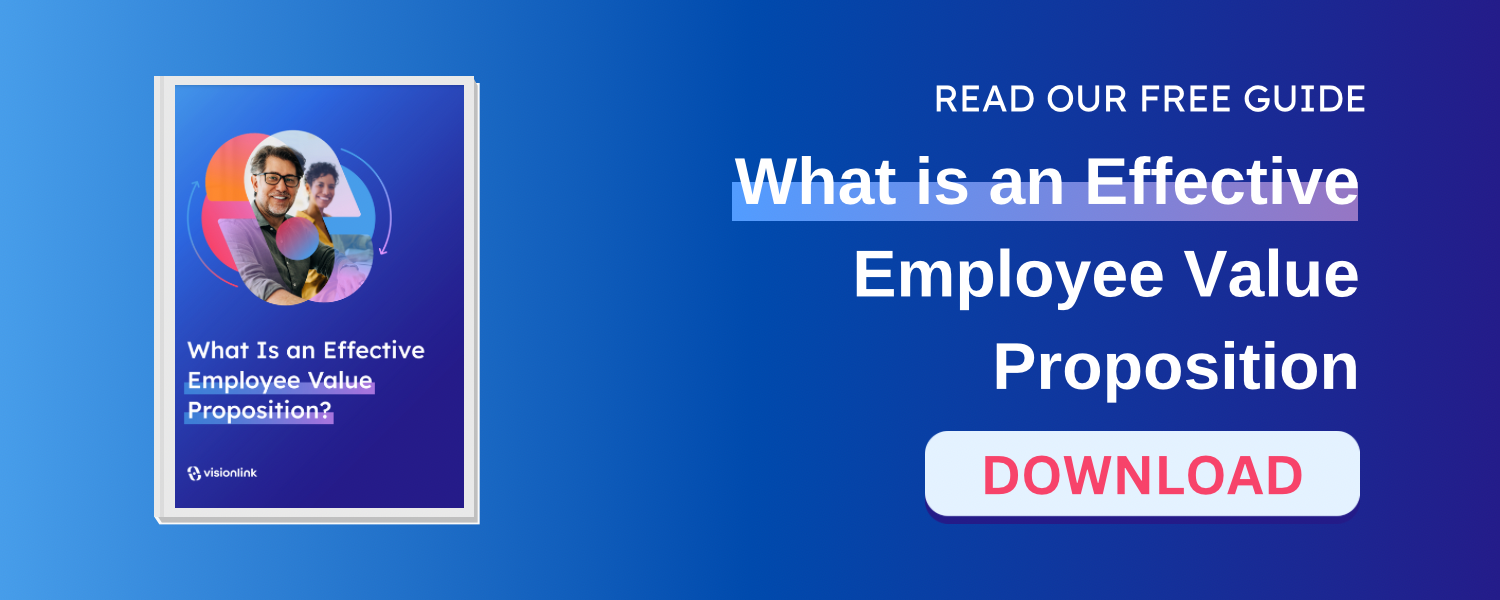The 4 Keys of an Employee Value Proposition that Immunizes Against Attrition & Attracts Top Talent
November 15, 2023 • By Ken Gibson

As you’re aware, a disturbing trend emerged in the wake of the pandemic. Businesses experienced a surge in employees leaving their companies. Survey data at the time indicated that just within the United States, 3.6 million employees resigned from their jobs in May, 2021 alone. To give you a sense of the scope of the problem at the time, here is the lead paragraph from a Gallup Workplace article summarizing the findings of its research last summer:
A new Gallup analysis finds that 48% of America's working population is actively job searching or watching for opportunities. Businesses are facing a staggeringly high quit rate…and a record-high number of unfilled positions. And Gallup discovered that workers in all job categories, from customer-facing service roles to highly professional positions, are actively or passively job hunting at roughly the same rate. (“The 'Great Resignation' Is Really the 'Great Discontent',” Gallup Workplace, July 22, 2021)
The article goes on to point out that the reason so many are leaving is because employees feel disengaged from their work. “People are calling it the ‘Great Resignation,’” the article goes on to say, “and as the Gallup data show, it’s not an industry, role or pay issue. It’s a workplace issue.”
Well, the workplace issue has not since resolved itself, and the heavy attrition trend did not just go away. It only accelerated.
So, if the workplace continues to be the issue, what’s the solution?
Well, to state the obvious, the workplace needs to change. But how?
In VisionLink’s work with hundreds of businesses for over 25 years, we have identified four areas of an employee value proposition and experience that cause the best talent to either join an organization or leave. Each of these is under constant scrutiny by individuals who know, based on their resumes, they have options. And this scrutiny is now happening at higher levels than ever before. Consequently, if your top employees determine any one of these dimensions is not meeting their expectations, they will leave.
By the way, in case you were thinking it, the “Great Resignation” is not evidence that employees have developed a heightened sense of entitlement—and therefore nothing you do will please them. In fact, companies that make that assumption are fooling themselves and are bound to suffer most from the attrition trend that continues. No, the trend is evidence that employees have a heightened understanding of the kind of employee experience that is available to them in the 21st century workplace—and they intend to have it. It’s a wake-up call for businesses to “up their game.”
The 4 Keys
As you examine the four keys we are about to discuss,” think about employees who have left your organization recently. See if you can identify which of these areas caused them to leave. Then consider what changes or improvements are needed in your employee value proposition to prevent your business from becoming part of any attrition surge that may occur. Think of your value proposition as a kind of promise you are making to current and potential employees—especially key talent—about the experience they will have while working for your company.
1. Communicate and Deliver a Compelling Future
Top performers want to be compelled by where a business is headed and the role it sees for them. They want to be part of an organization that views the marriage of their capabilities with the resources of the company as essential to the future success of the business. It is not enough that an enterprise’s employees believe the company has a good product and that it will do "well enough" as a result. That may be reassuring, but it is not compelling. Instead, people who have options want to know how the organization envisions using their talents to make the future company a reality, and why it sees their contributions as essential to making that happen. Further, they want their role to have strategic purpose and will resist being encumbered by duties that can be better administered by others. They want their whole focus to be on driving the success of the business.
2. Build Around Unique Abilities
Employees that matter most to the future of the business are catalysts. This means they are people who are able make the right things happen—and quickly. These individuals have confidence in their ability to produce results if teamed with the right people and resources. Consequently, they want their role to be aligned with their unique abilities and for those who work with them to be similarly positioned. When they don’t experience this, they are concerned. They know it is the united efforts of individuals applying their unique abilities that create unique teams—and that unique teams are key to a company’s ability to achieve and maintain a competitive advantage. Top talent recognizes that neither individual nor organizational success is possible unless the right synergies can be formed, nurtured, and magnified.
So, if you want to attract and retain the best people, make sure they are working within the scope of their unique abilities and are surrounded by a unique team.
3. Enable Personal and Professional Growth
Great employees perform well and are fully engaged when they are part of a culture that empowers them to succeed. This means companies must provide an environment that enables their people to experience personal and professional growth in ways they couldn’t outside the organization that employs them. Top talent wants to know that because of the resources to which they are exposed in the company they work for—people, technology, training, partnerships, capital, etc.—they will get better at what they do. They recognize that if their capabilities increase, they will feel fulfilled personally and professionally. This strengthens an employee’s unique ability, putting them in a better position to create value for the company. That’s win-win. So, if you want the best people to join your company and stay, make sure you make it easy for them to develop personally and professionally.
So, if you want the best people to join your company and stay, be sure you make it easy for them to develop personally and professionally.
4. Treat Employees as Growth Partners
Individuals with unique talent are looking for an equally unique value proposition. And that doesn’t mean they are simply looking for a higher salary than another company will offer. They want to be thought of and treated as a business partner, not just an employee. Among other things, this means they want to know they will be able to participate in the value they help create. They feel that if they make a significant contribution to business growth, it’s fair to expect that result will be rewarded. So, people who have confidence in their career options view a compensation offer as an opportunity for the company to state, in financial terms, the nature of the growth partnership it wishes to have with them.
Treating employees as growth partners doesn’t mean they need to be given stock in the company, although in some cases that may be appropriate. In the case of compensation, it means the business doesn’t just pay attention to how much it pays its people, but how it pays them (what form the compensation takes). Employees want to understand their employer’s philosophy about compensation and value-sharing. Then they want to see that the rewards plan they are offered is consistent with that philosophy. Generally, they will expect it to strike the right balance between guaranteed and variable compensation and between short and long-term value-sharing (incentives). And they will want their employer to be able to draw a connection between their financial opportunity with the company and the compelling future talked about in the first key.
So, if you want to attract individuals who will help accelerate the growth of your business, treat and pay them like growth partners.
All business leaders would do well to understand the intent of these four keys and then implement them. The “Great Resignation” businesses began experiencing in 2021 created a reset in the kind of employee experience companies need to provide—and that top talent expects. And, however great you think your employee experience is, there are competitors offering a value proposition that is just better enough to draw your people away. Don’t give them that chance.
Ready to Get Started?
When it comes to building a compensation strategy, you can trust that VisionLink knows what works and what doesn’t. We are ready to share that knowledge with you.
Stay Connected
Receive free, ongoing access to updates on compensation and talent trends, reports, events, and more.


